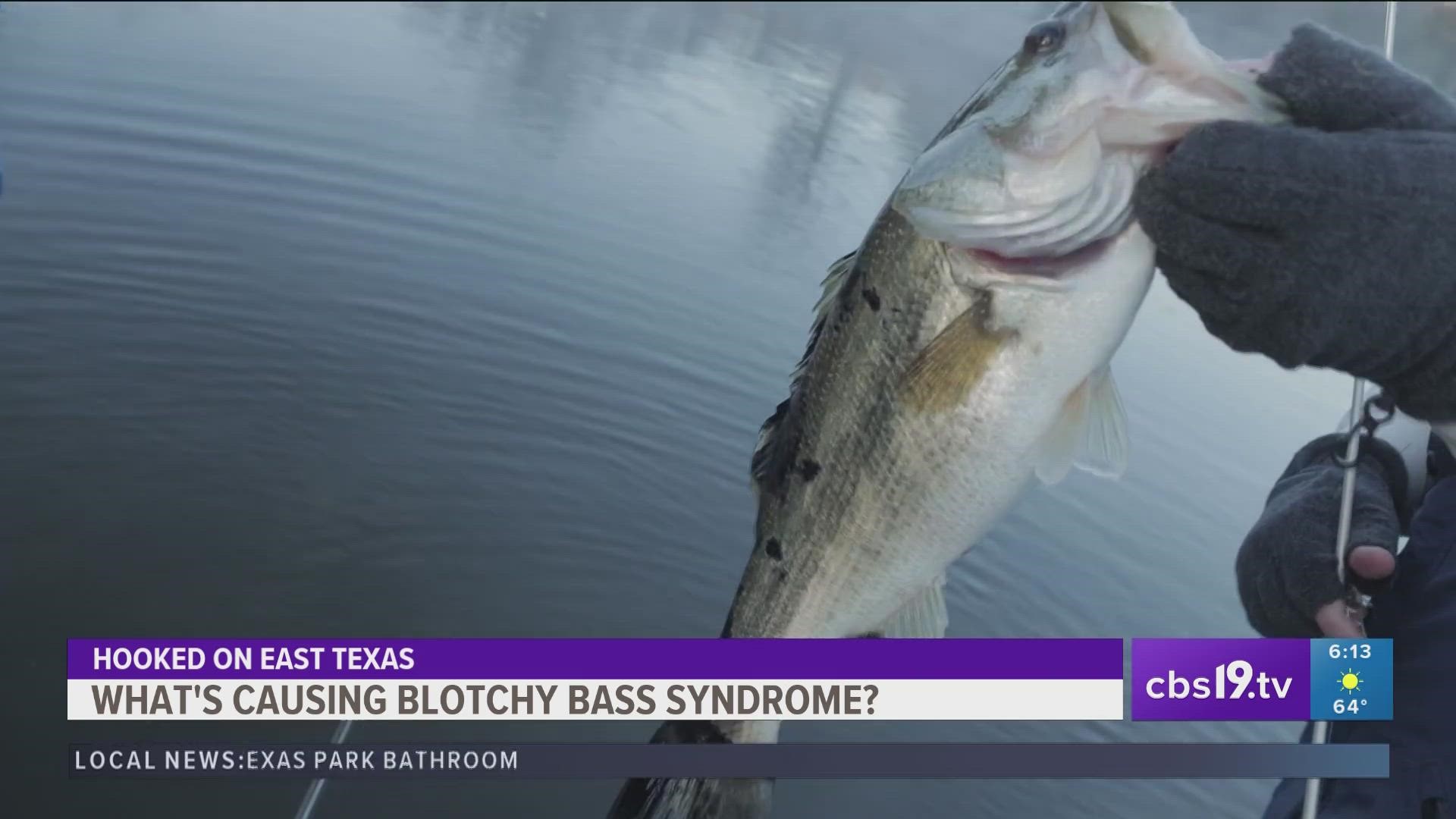TYLER, Texas — Scientists are studying a puzzling virus in bass fishes and we're getting some answers tonight. In this this week’s Hooked On East Texas, we've got an update on Blotchy Bass Syndrome.
Last year, we featured fishing guide Vince Richards who caught this blotchy bass at Caddo Lake. Back then U.S.G.S and Texas Parks & Wildlife scientists were trying to figure out what was causing the black spots. And now thanks to tissue swabs and more than a thousand pictures, fisheries biologist Dr. Cynthia Fox-Holt said scientists now know the virus is called Adomavirus.
Fox-Holt lead the data collection efforts. She tells us scientists confirmed the blotches are caused by an immune response to stress. Sort of like when our bodies produce histamines to fend off allergies.
“The fish are kind of the same way," said Fox-Holt. "When it has the virus and it becomes stressed the immune response is to produce the ink-like blotches."
But scientists are unsure how the blotches help the fish and what causes the stress? It could be cooler water temperatures. The blotches show up most often in the colder months. Or is it something triggered genetically?
Up next, she studied other bass species.
“We’re actually hoping to target some smallmouth bass, some spotted bass, and Guadalupe bass to collect swabs this year to see if each of those species have their own individual virus within Texas," Fox-Holt said.
Questions remain on how the virus is spread. This map shows where fish with Adomovirus were caught. All in the eastern half of the United States except for a few fish caught in Washington. Fox-Holt described how the fishes were caught.
"Those fish were actually caught on a guided fishing trip during a fisheries conference where the U.S.G.S. scientists were presenting his research and his findings on the Adomovirus in bass," Fox-Holt said.
There is still work left to do. Biologists want to know how it’s transmitted and agree more research is needed to ensure the virus isn’t a threat to bass populations giving guides like Richards a chance to catch another good one.
“In relation to this virus, there’s no way for us to know, yes, we caught this one blotchy bass that was perfectly healthy, swam away just fine but there might be 10 more beneath the water surface. We’re not catching because they’re not actively feeding and they are immune-stressed and they might not be doing as well as the one we caught," Fox-Holt said.
Texas Parks and Wildlife Department is still getting submissions. But in March the "MyCatch" App will start an international effort to see if Adomavirus is showing up in other countries. We'll be sure to pass along more information next month.

